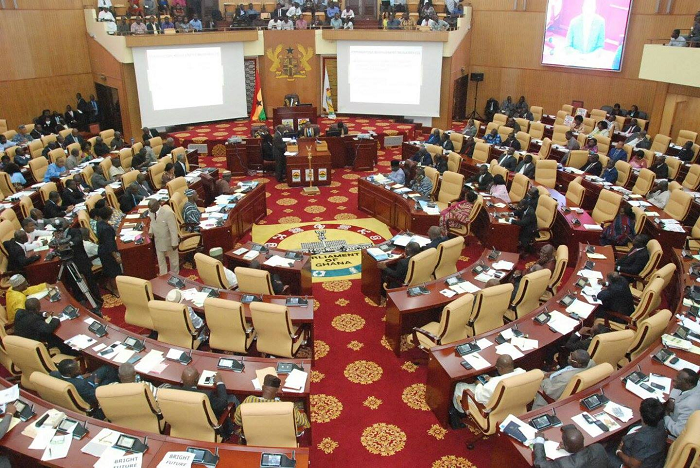
... And Parliament sits long hours
Significant bills that seek to improve financial management in the public finance system were passed during the Second Meeting of the Fourth Session of the Sixth Parliament of the Fourth Republic of Ghana which ended last Friday.
Advertisement
Also passed were bills that aim to protect the interest of depositors and others that focus on improving technical education and protecting the environment.
In fact, Parliament had to extend sitting by additional days and for longer hours to be able to pass some of the bills.
The 19 bills passed during the Second Meeting include the Technical Universities Bill 2016; the Petroleum (Exploration and Production) Bill, 2016; the Bank of Ghana (Amendment) Bill, 2016; the Public Financial Management Bill, 2016; the National Disaster Management Organisation Bill, 2015; the Hazardous and Electronic Waste Control and Management Bill, 2016; the Ghana Deposit Protection Bill, 2015, and the Banks and Specialised Deposit an Taking Institutions Bill, 2015.
Financial management
The Public Financial Management Bill, 2016, seeks to improve financial management, accountability and transparency in government transactions.
It also aims to promote efficient, effective and economical use of the resources of government and also contribute to the achievement of national goals.
The bill was presented to Parliament and read the first time by the Minister of Finance, Mr Seth Terkper, on June 24, 2016, and the Speaker of Parliament consequently referred it to the Finance Committee for consideration and report.
A report by the Finance Committee of Parliament noted that the bill proposed a significant modification of the funding account structure of government by the establishment of a treasury single account — a consolidated bank account system for processing all central government receipts and payment transactions.
To further improve public debt management, the report indicated that the bill introduced a debt management office within the Ministry of Finance with the responsibility for handling debt management operations, carrying out risk assessment for government guarantees and supplier credit arrangements and placing the feasibility of borrowing requirements within an overall government fiscal strategy.
The Bank of Ghana (Amendment) Bill, 2016, seeks to restrict government's borrowing from the central bank.
By the passage of the bill, the amount of money the government can borrow from the Bank of Ghana (BoG) has been decreased from 10 per cent of its current revenue, as contained in the previous BoG Act 2002, to five per cent of its previous year’s revenue.
The act is expected to speed up the release of the fourth tranche of the US$918 million from the International Monetary Fund (IMF) to the government.
With the passage of the bill, the BoG will provide emergency liquidity support for banks, savings and loans and finance houses.
Additionally, the act eliminates the clauses that allowed officials from the Ministry of Finance to be part of the Monetary Policy Committee (MPC) of the BoG.
One significant aim of the act is to make the government focus on managing fiscal policies, while the central bank manages the monetary policies. The idea is to prevent interference from the government.
Polytechnics
Polytechnics in the country were also given the legal clearance to be converted to technical universities following the passage of the Technical Universities Bill 2016 by Parliament last Wednesday.
With the passage of the bill, polytechnics can be converted to technical universities to provide higher education with emphasis on science and technology-oriented disciplines, technical and vocational training, as well as applied arts and related disciplines.
Another significant bill passed by Parliament was the Petroleum (Exploration and Production) Bill, 2016.
It seeks to provide for and ensure safe, secure, sustainable and efficient petroleum activities in order to achieve optimal long-term petroleum resource exploitation and utilisation for the benefit and welfare of the people of Ghana.
The management of disasters and other emergencies in the country also received a boost, following the passage of the National Disaster Management Organisation Bill, 2015 into law by Parliament.
The act seeks to develop the capacity of communities to respond effectively to disasters and emergencies.
Under the act, the National Disaster Management Organisation (NADMO) is responsible for the preparation of disaster management plans at the national, regional and district levels.
It is also required to coordinate, monitor and update disaster management plans.
#GhanaVotes2016




